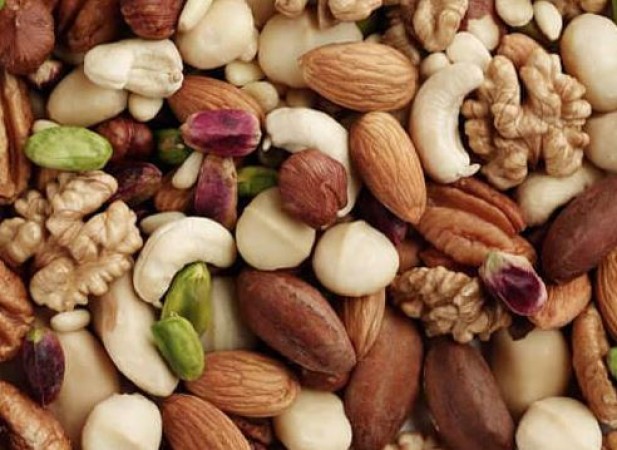
Dry fruits, often celebrated for their rich nutrient content and convenience, have found a place in the diets of health-conscious individuals worldwide. Packed with essential vitamins, minerals, and antioxidants, these dried delights offer a myriad of health benefits. However, like anything in life, moderation is key. The allure of dry fruits can sometimes lead to overindulgence, resulting in unintended consequences for health. This article explores the potential hazards of excessive dry fruit consumption, shedding light on the delicate balance required to harness their benefits without succumbing to their downsides.
The Nutritional Appeal of Dry Fruits
Dry fruits, or dried fruits, are fresh fruits with most of their water content removed through various drying methods, such as sun-drying or using specialized dehydrators. This process concentrates their nutrients and flavors, creating a portable and long-lasting snack that is easy to store and consume. Dry fruits are revered for their high fiber, vitamins, minerals, and phytonutrient content, making them a valuable addition to a well-rounded diet.
Common dry fruits like raisins, dates, apricots, and figs are naturally rich in dietary fiber, which supports healthy digestion and can contribute to feelings of fullness. Moreover, they are packed with essential minerals like potassium, magnesium, and iron that play vital roles in maintaining optimal bodily functions. Additionally, dry fruits are often loaded with antioxidants, such as polyphenols, which combat oxidative stress and inflammation, contributing to overall well-being.
The Pitfalls of Excess
Despite their nutritional prowess, indulging in excessive quantities of dry fruits can potentially undermine one's health goals. Here are a few noteworthy considerations:
Caloric Density: Dry fruits are calorie-dense due to their water content being removed, leading to a concentrated source of calories. Consuming them in excess may contribute to an increase in caloric intake, which can lead to weight gain if not balanced with physical activity.
Sugar Content: While the natural sugars in dry fruits come with fiber and other beneficial compounds, they can still contribute to elevated blood sugar levels if consumed excessively. This is particularly important for individuals with diabetes or those at risk of developing the condition.
Nutrient Imbalance: Relying heavily on dry fruits as a primary source of nutrients can lead to an imbalance in the overall nutrient profile. A well-rounded diet should include a variety of foods to ensure all essential nutrients are adequately obtained.
Gastrointestinal Issues: The high fiber content in dry fruits can be both a boon and a bane. While fiber aids digestion, excessive consumption without proper hydration can lead to bloating, gas, and discomfort.
Overconsumption of Micronutrients: Dry fruits are rich in certain minerals like potassium. While these minerals are essential for health, excessive intake can disrupt the delicate balance of electrolytes in the body, potentially leading to health issues.
Dental Health: The sticky nature of some dry fruits, like dates and raisins, can cling to teeth and increase the risk of dental problems if not consumed in moderation and followed by proper oral hygiene.
Striking the Right Balance
The key to reaping the benefits of dry fruits without falling into the trap of overindulgence lies in finding a balance that aligns with individual nutritional needs and goals. Here are some strategies to consider:
Portion Control: Moderation is paramount. Limiting portion sizes of dry fruits can help manage calorie intake and prevent excessive sugar consumption.
Diversify Your Diet: Instead of relying solely on dry fruits, incorporate a wide variety of whole foods into your diet. This ensures a more balanced nutrient intake and reduces the risk of nutrient imbalances.
Hydration: Drink an adequate amount of water when consuming dry fruits to support proper digestion and minimize gastrointestinal discomfort.
Pairing: Pair dry fruits with other nutrient-rich foods, such as yogurt, for a well-rounded snack that provides a mix of nutrients, textures, and flavors.
Regular Monitoring: If you have health concerns, such as diabetes or weight management, consult a healthcare professional or registered dietitian to determine the appropriate amount of dry fruits for your specific needs.
Mindful Eating: Practice mindful eating by savoring each bite and paying attention to your body's hunger and fullness cues. This can help prevent mindless overeating.
Dry fruits undoubtedly offer an array of health benefits, but their potential downsides should not be ignored. As with any dietary choice, moderation and informed decision-making are crucial. By understanding the nutritional composition of dry fruits and considering individual health needs, one can strike a balance that allows them to enjoy these delicious and nutrient-packed treats without compromising overall health. Remember, the key lies in making informed choices that align with your well-being goals.
Explore these Simple Stretches for Effective Back Pain Prevention
Pistachio Power: Creative Brunch Ideas to Impress Your Guests
Eating Well Made Easy: Try Our Delectable Chef's Special Salad